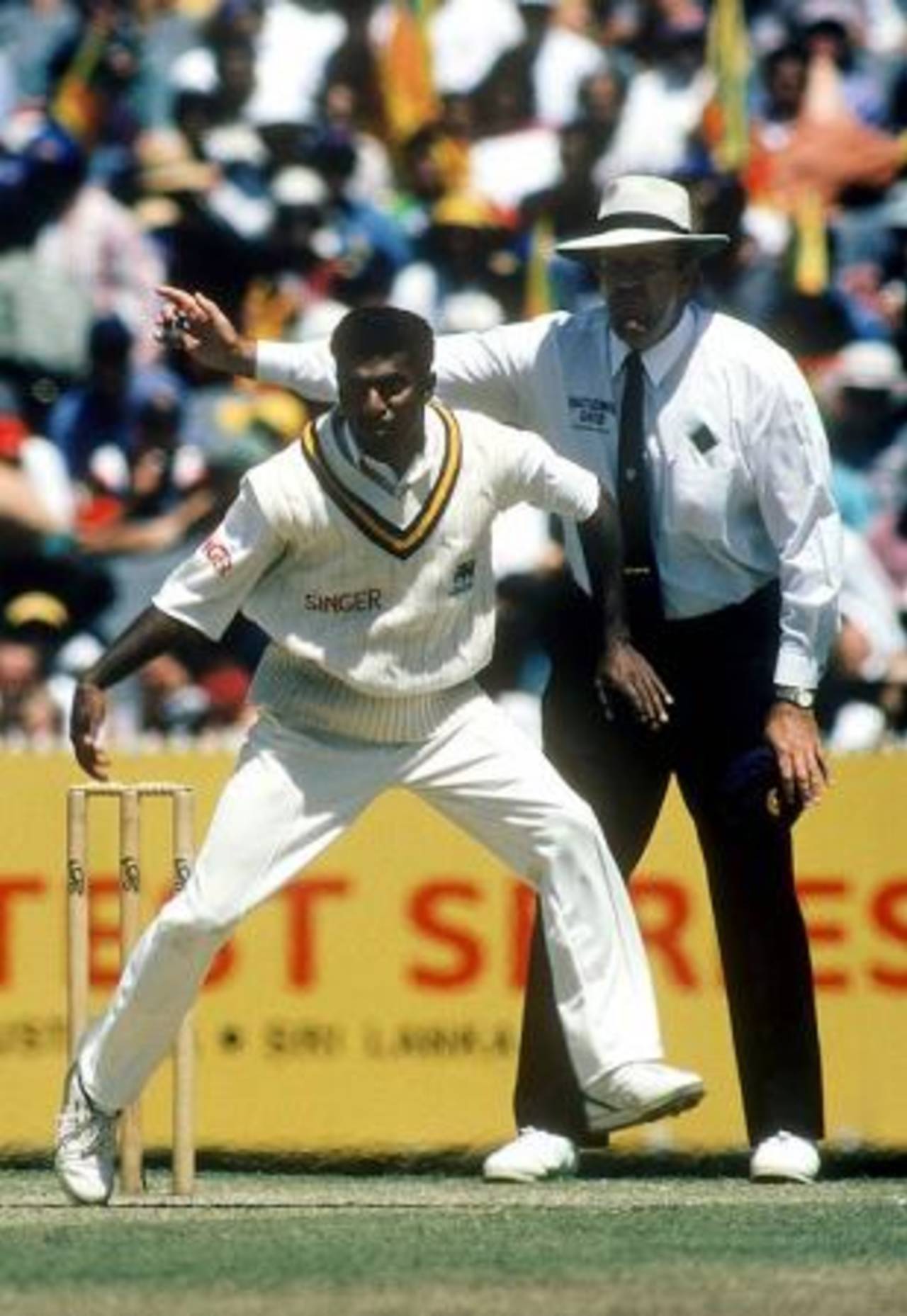Former international umpire
Darrell Hair has said the ICC's crackdown on bowlers with suspect actions has come 20 years too late, and that the weakness of umpires over time to do anything about the issue has helped created a "generation of chuckers." Hair was the first umpire to call former Sri Lankan offspinner Muttiah Muralitharan for chucking during a Boxing Day Test in Melbourne in 1995.
"Whatever they're doing now, they're doing 20 years too late," Hair told Sydney Morning Herald. "They had a chance in 1995 to clean things up and it's taken them 19 years to finally come back and say they want chuckers out of the game. I can't believe that Saeed Ajmal has been able to bowl as long as he has, and they say he is bending his arm by 45 degrees [the legal limit is 15 degrees] or something. Well, every man and his dog would have known that.
"I suppose what it does show is the general weakness of the umpires over time to do anything about it."
After Hair called Murali for chucking in December 1995, the spinner had his action cleared the following summer, but was once again called by Australian umpire Ross Emerson during an ODI between England and Sri Lanka in Adelaide in 1999.
"All I was doing at any time was just doing my job and I think I did it to the best of my ability," Hair said. "The fact was that no other ICC umpires were willing to have a go. Ross Emerson was very adamant about his thoughts about chuckers but they soon put him into the background.
"I suppose I was lucky I had a few games under my belt so they didn't want to target me, but they certainly got him out of the way fairly swiftly. It'll be interesting to see how many umpires are brave enough to get involved in it. I said it in the late '90s that if something wasn't done about it you'd have a generation of chuckers on your hands and now you have."
Since July 2014, ICC match officials reported Sri Lanka's Sachithra Senanayake, Pakistan's Saeed Ajmal, New Zealand's Kane Williamson, Zimbabwe's Prosper Utseya and Bangladesh's Sohag Gazi for suspect actions and all of them were banned from bowling in international cricket after undergoing tests. Sunil Narine, Mohammad Hafeez, Adnan Rasool, Suryakumar Yadav and Prenelan Subrayen were also reported for suspect actions in the Champions League T20. While all of these bowlers are finger spinners, Bangladesh's Al-Amin Hossain was the only medium-pacer reported, during Bangladesh's tour of West Indies in September.
The drive against illegal actions intensified after an ICC Cricket Committee meeting in June. "The game had reached a tipping point on this issue, when many groups within the game felt that there were too many bowlers with suspect actions operating in international cricket," ICC general manager of cricket operations, Geoff Allardice, told Fairfax Media. "The most prominent of these groups was the ICC Cricket Committee at its meeting in June, when it observed the ICC's reporting and testing procedures were not adequately scrutinising these bowlers. They weren't the only ones talking about this issue, as similar views had been expressed by teams, players, umpires, referees and administrators.
"Since that time the umpires have felt more confident to report their concerns with certain bowlers, and their concerns have been supported by the results of the testing of these reported bowlers."
